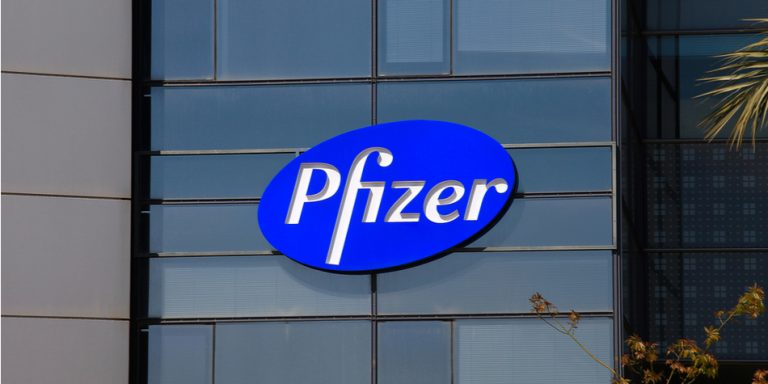Pfizer Inc. (NYSE:PFE) surprised Wall Street with single-digit growth and said future earnings should rise because of the Trump tax cut.
PFE stock had jumped about $2 per share leading up to the earnings release, but following the report, shares fell to pre-spike levels.
The spike was caused by Pfizer rival AbbVie Inc (NYSE:ABBV) reporting a new adjusted tax rate of only 9%. Investors were hoping for a similar rate for Pfizer, but the pharmaceutical company instead projected a 17% tax rate going forward.
Pfizer’s tax cut-driven earnings gain was still worth about $10.7 billion. But this is far from a major turning point for the stock.
Investors have been looking for stronger growth from PFE ever since the recovery started in 2009. It is up 154% in that time, but the S&P 500 is up 242%.
PFE Is a Yield Stock
Pfizer has always been a yield stock, a stock you buy for the dividend income. Thus, a big gain would be negative for new investors. Had PFE not dropped following earnings, the yield on the 34-cents-per-share dividend would be down to 3.49%, which with the 10-year note approaching 3% is no longer as attractive as it was.
A look inside the earnings also shows little reason for excitement. The 2018 revenue estimate is $53.5-55.5 billion, still small after 2017’s $52.5 billion. Even with the tax cut, it is looking at an EPS for next year of $2.90-3.00, compared with $2.65 in 2017.
That’s not big growth. That’s just keeping up. A top line growing at 4% and a bottom line growing at 11%, at least for one year, doesn’t merit a premium price to earnings multiple, and Pfizer’s is now about 23. The average analyst rating on Pfizer today is ‘overweight’, but it’s worth noting that only 2 analysts have the stock as overweight — most others are evenly split between ‘sell’ and ‘hold.’
I think that rating is generous.
Pfizer still does not have a replacement for Lipitor, an old flagship drug, which is now widely available in cheap, generic forms.
That’s the problem.
Biosimilars Not Enough
Pfizer hasn’t had a mega-hit since Lipitor, also known as atorvastatin, the best-selling drug in the history of pharmaceuticals. I’m a Lipitor fan and a regular user, thanks to a genetically high cholesterol count, one that gave my late father his first heart attack in his 40s. But Pfizer hasn’t been able to replace the revenue lost when Lipitor’s patent ran out.
InvestorPlace’s Lawrence Meyers expresses hope for biosimilars
, drugs that are similar to existing drugs and which have the same action on the patient. This business grew 66% last year, he reports.
That’s great, but biosimilars point the way to trouble, for Pfizer and the whole sector. They are meant to provide competition, and they do, which is great for patients. But it’s bad for drugmakers. If PFE can compete with biosimilars, others can compete with Pfizer the same way.
No Change
PFE had a chance to become a go-go stock a few years ago, when it agreed to merge with Allergan plc (NYSE:AGN). That merger was halted by the Obama Administration, which changed tax rules to block it. (Pfizer shareholders should be grateful because Allergan’s value has since slipped by 30%.)
The Allergan merger was designed to be the first in a flurry of deals that would allow Pfizer to headquarter in Ireland — and pay Ireland’s lower coporate tax rate.
Bottom Line For PFE stock
As it is, PFE remains an income stock. Income stocks are measured against what you might get with a lower-risk bond instrument.
Pfizer stock is still better than a 30-year bond, and since it has fallen from its pre-earning spike, I do recommend it for income investors.
Dana Blankenhorn is a financial and technology journalist. He is the author of the historical mystery romance, The Reluctant Detective Travels in Time, available now at the Amazon Kindle store. Write him at danablankenhorn@gmail.com or follow him on Twitter at @danablankenhorn. As of this writing, he owned no shares in companies mentioned in this story.

